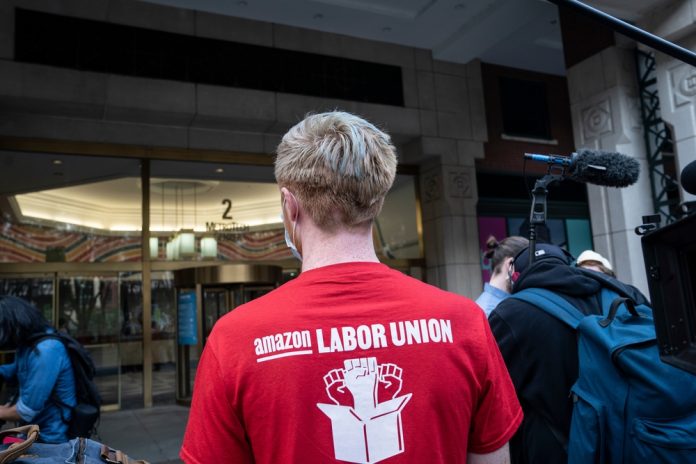
On May 1, 2023, the National Labor Relations Board (NLRB) issued its decision in Lion Elastomers, 372 NLRB No. 83 (2023), which reinstated three “setting specific” tests used to evaluate whether an employer can lawfully discipline an employee for misconduct in specific contexts. Specifically, the tests apply to situations where an employee engages in inappropriate conduct while also engaging in protected “Section 7” activity. Under these circumstances, employees have considerable leeway to engage in impulsive behavior and only can be disciplined if their conduct goes so far afield as to lose legal protection under the National Labor Relations Act (NLRA). Employers are wondering what they need to know about how to manage discipline in the wake of this decision.
What is Protected Section 7 Activity?
Section 7 of the NLRA protects employee rights to join a union, refrain from doing so, and engage in protected concerted activity. Union activity is generally easy to spot but protected concerted action can be more nuanced. Protected concerted activity encompasses a wide range of employee efforts to improve their terms and conditions of employment—typically topics such as wages, hours, benefits, safety, and working conditions. The activity must be group-focused and not based solely on an individual’s concern to be protected.
What Are The Setting-Specific Tests?
If an employee’s misconduct is also intertwined with protected Section 7 activity, management should consider whether one of the following settings is applicable.
- Employee Outbursts During Management Discussions – This test applies when an employee makes an inappropriate or obscene outburst while discussing a topic protected by Section 7 with management, such as union or group concerns about wages and working conditions. In this context, the NLRB applies the four-factor Atlantic Steel test, which considers “(1) the place of the discussion; (2) the subject matter of the discussion; (3) the nature of the employee’s outburst; and (4) whether the outburst was, in any way, provoked by an employer’s unfair labor practice.” See Atlantic Steel, 245 NLRB 814, 816 (1979). Managers should know that activity is generally more likely to be protected if it takes place in a private office versus in an open area in front of employees or customers or disrupts operations.
- Inappropriate Social Media Posts – When an employee makes profane off-duty social media comments in relation to Section 7 activity, the Board weighs multiple factors in determining whether the employee retained the Act’s protection. The Board has considered factors such as employer anti-union hostility, provocation, impulsivity, location, subject matter, nature of the post in question, whether the employer maintained specific rules prohibiting the language at issue or otherwise previously deemed it offensive, and whether the discipline issued was typical as compared to similar offenses. Pier Sixty, LLC, 362 NLRB 505, 506 (2015), enfd. 855 F.3d 115 (2d Cir. 2017).
- Picket Line Misconduct – The NLRB gives employees the most leeway to engage in otherwise inappropriate conduct while striking on the picket line. In these circumstances, the NLRB asks whether “the misconduct is such that, under the circumstances existing, it may reasonably tend to coerce or intimidate employees in the exercise of rights protected under the Act.” Clear Pine Mouldings, Inc., 268 NLRB 1044, 1046 (1984) (internal citations omitted).
Where is the Line For Offensive Outbursts?
Managers may be surprised to learn that the NLRB has allowed employees to engage in extreme conduct while simultaneously involved in Section 7 activity. This includes raising their voice, rude and disrespectful comments to managers, insults, and profanity, and even sexist and racially charged actions that otherwise would violate the company’s EEO or Anti-Harassment policies. The NLRB also considers the character of the workplace when drawing the line, including whether the company usually tolerates unruly behavior or profanity (for instance, cursing in the workplace).
Does This Ruling Apply to Non-Unionized Companies?
Absolutely. The NLRA also imposes obligations on private employers without a union presence.
What is the NLRB’s Reasoning For Changing the Law?
The NLRB opined that the Lion Elastomers decision was necessary because the prior case governing this conduct (General Motors) “broke sharply with judicially approved precedent and did not give adequate consideration to the importance of workers’ rights under the National Labor Relations Act.” Lion Elastomers, 372 NLRB No. 83, slip op. at 8. NLRB Member Marvin Kaplan dissented from the majority and defended the prior General Motors case. He expressed concern that the “setting specific” standards have been greeted with skepticism by the courts, have previously caused inconsistent case law, and will “require employers to continue to employ individuals who have engaged in such abusive conduct any reasonable employer would have terminated them.” Id. slip op. at 21-22. He further remarked, “if the past is any guide,” the Board will defend otherwise indefensible employee misconduct, including: “profane ad hominem attacks and threats to supervisors in the workplace, posting social media attacks against a manager and his family, shouting racist epithets at other employees, or carrying signs sexually harassing a particular employee.” Id. (internal citations removed).
While we expect that the NLRB’s application of such tests will be challenged in federal courts, this litigation can take years and is unpredictable. As such, companies should be prepared to evaluate disciplinary actions under the current NLRB standards.
Tips Moving Forward
Employers should be hyper-vigilant in scrutinizing the contextual facts prior to disciplining an employee for misconduct that occurred alongside protected Section 7 activity. First-level supervisors and Human Resources Professionals should be trained to identify Section 7 activity and maintain awareness during employee engagements. Companies should also take this opportunity to review their handbook and determine whether it makes sense to tighten up policies or add prohibitions against using profanity in the workplace. Companies should also maintain awareness of their obligations to prevent hostile work environments based on protected traits under federal, state, and local EEO laws, as they may conflict with the NLRB’s standards.




